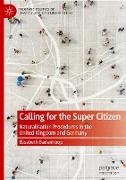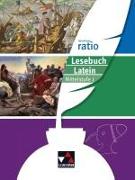- Start
- Calling for the Super Citizen
Calling for the Super Citizen
Angebote / Angebote:
This book proposes a bold new interpretation of naturalisation requirements and procedures. Badenhoop regards them as state efforts to produce "Super Citizens", who contribute to the economy and cultural diversity, and show loyalty and gratitude. A must-read for scholars, policy-makers and others interested in citizenship."
- Rainer Bauböck, European University Institute, Italy
"Elisabeth Badenhoop's book provides important insights into the character of naturalisation processes in modern states. The figure of the "Super Citizen" is a powerful metaphor for the ways in which states use the naturalisation processes to place heavy demands on migrants."
- Jo Shaw, Edinburgh Law School, UK
"Badenhoop's book is a powerful and revealing, indeed breakthrough study that will shape citizenship research for years to come."
- Steven Vertovec, Max Planck Institute for the Study of Religious and Ethnic Diversity, Germany
This book offers the first empirical and holistic analysis of the design, implementation and effects of the new naturalisation regimes in the United Kingdom and Germany introduced in the 2000s. Based on a multi-sited state ethnography, it uniquely compares the law on the books, the local administration, and the lived experiences of citizenship tests, courses, and ceremonies from an interdisciplinary social science perspective.
The book argues that naturalisation procedures in both countries suggest to migrants to constantly optimise themselves in the state's interests toward the subjectivity of the "Super Citizen" - a political, economic, and cultural asset to the liberal-democratic, capitalist nation-state. The concept of the Super Citizen enables us to highlight and criticise the overburdening expectations toward citizens by application as opposed to citizens by birth. The analysis reveals that the self-presentation of Britain and Germany as liberal and meritocratic polities is in stark contrast to migrants' lived experiences of the naturalisation process.
By shedding light on naturalisation policies' efficacy, this book is aimed at students and scholars in sociology, politics, law, anthropology, and education, as well as policy-makers in the areas of citizenship and migration.
Elisabeth Badenhoop is Assistant Professor of Sociology at the University of Wuppertal, Germany.
Folgt in ca. 15 Arbeitstagen

